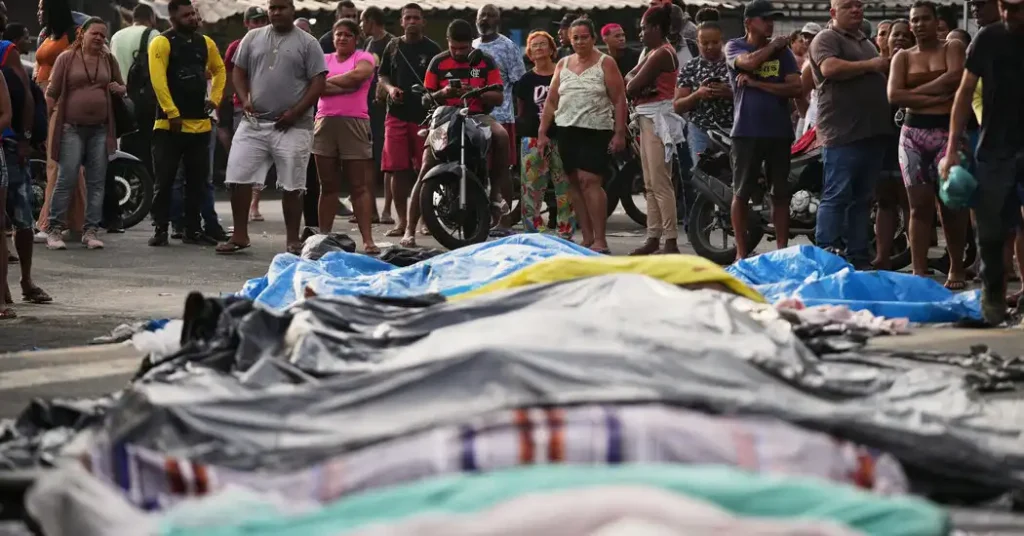The death toll following a major police and military operation against a powerful drug gang in Rio de Janeiro has tragically climbed to 119, authorities confirmed on Wednesday. This count includes four police officers who lost their lives during the intense fighting.
The massive, high-stakes operation on Tuesday targeted the notorious Comando Vermelho (Red Command) gang. More than 2,500 police and soldiers participated in the raid. The sheer scale of the force deployed highlighted the seriousness of the government’s war against organized crime.
Chaos and Carnage in Low-Income Areas
The offensive sparked hours of intense, devastating gunfire. The violence spread across two low-income neighborhoods, known locally as favelas. Residents described horrific scenes of chaos and profound fear. As the gunfight subsided, the bodies of the dead filled the streets.
Community leader Carlos da Silva, 44, emotionally condemned the event as a “carnage.” He compared the devastation to scenes only witnessed in global war zones. “It looked like a tsunami hit us,” da Silva asserted. “There were bodies everywhere.” The scale of the loss in such a short period underscores the extreme level of violence that took place.
UN Raises Deep Concerns Over Brutality
The international community quickly voiced strong alarm over the bloodshed. The UN Human Rights Office expressed deep concern about the raid’s outcome.
A UN Human Rights spokesperson for Brazil acknowledged the difficulty of confronting violent criminal groups. However, the spokesperson immediately questioned the methods used. The UN noted the long history of operations resulting in numerous deaths.
These raids disproportionately affect people of African descent, raising fundamental questions about police conduct.
The UN called on Brazil to break this cycle of extreme brutality. Furthermore, the organization demanded that all police actions strictly adhere to international standards governing the use of force. This plea highlights the ongoing controversy surrounding law enforcement tactics in the region.
Government Defense and Social Aftermath
The state government of Rio de Janeiro moved quickly to defend the highly controversial operation. Officials maintained that every individual killed had actively resisted arrest. This defense sets up a clash between official accounts and the testimonies of local residents.
The raid ranks among Brazil’s deadliest in recent years. Consequently, the event has significantly intensified the national debate regarding two critical issues: the severity of police violence and the government’s overall strategy against organized crime.
In the affected areas, daily life ground to a halt. Schools and a local university were closed for safety. Additionally, major roads were completely blocked, with buses used as makeshift barricades, further adding to the instability and chaos experienced by the general public.
The physical and psychological impact of the violence will be felt in these communities for a long time. The government faces mounting pressure to address both the organized crime threat and the human cost of its enforcement efforts.
READ ALSO: Nigeria’s First Lady Vows to End TB by 2030 at Global Summit




















